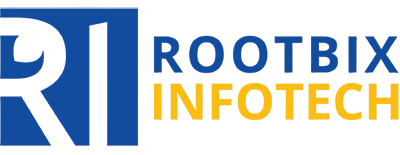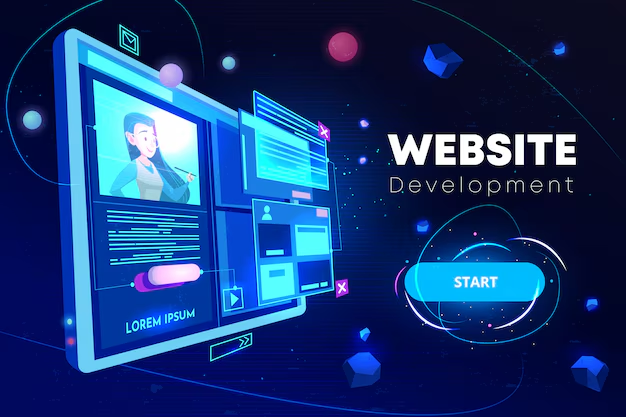How an LMS Can Revolutionize Recruitment

By Tanu Mittal, Digital Strategist, Rootbix Infotech Pvt. Ltd.
In today’s competitive job market, attracting and retaining the right talent has become more complex than ever. Traditional recruitment processes—characterized by endless resumes, manual screening, and lengthy interviews—are often time-consuming, inefficient, and expensive. This is where leveraging technology, like a Learning Management System (LMS), can revolutionize recruitment.
An LMS, traditionally used for employee training and development, can also be an effective tool for streamlining and enhancing the recruitment process. By integrating an LMS into your hiring strategy, you can evaluate candidates more effectively, reduce hiring time, and ensure that you’re selecting the best fit for your organization.
In this blog, I’ll walk you through how an LMS can transform recruitment, making it more efficient and impactful.
1. Pre-Hire Skills Assessment
One of the key challenges in recruitment is assessing the true capabilities of candidates. Resumes and interviews may not always provide an accurate reflection of a candidate’s skills. An LMS can be used to set up pre-hire assessments that test the knowledge and skills required for the job role.
For example, if you’re hiring a software developer, you can create coding challenges within the LMS. For a sales position, you can simulate customer interactions to assess how well candidates handle client relations. These assessments give you real insights into a candidate’s capabilities and allow you to make data-driven decisions.
By automating these assessments, you also reduce the chances of bias, ensuring a fair and objective evaluation of all candidates.
2. Streamlining the Onboarding Process
Recruitment doesn’t end once a candidate is hired. Successful onboarding is crucial to ensure that new hires quickly adapt to their role and integrate into the company culture. An LMS can streamline this process by offering structured onboarding programs that guide new employees through company policies, procedures, and role-specific training modules.
With an LMS, new hires can complete onboarding tasks at their own pace, review necessary information, and even track their progress. This helps reduce the workload for HR teams while ensuring that all employees are receiving consistent, high-quality training right from day one.
3. Candidate Engagement and Pre-Hire Training
Many industries require candidates to possess specific certifications or knowledge before they can be fully productive. In such cases, an LMS can be used to offer pre-hire training courses that help potential employees bridge any skill gaps before they officially start.
For example, if you’re recruiting in industries like healthcare or IT, where regulatory compliance or technical certifications are necessary, you can provide candidates with access to relevant learning materials through your LMS. Candidates who complete the training successfully demonstrate their commitment and ability to learn quickly, helping you identify those who are genuinely interested in the role and willing to invest in their professional growth.
4. Improved Collaboration Between HR and Hiring Managers
Recruitment is a team effort, and communication between HR and department heads is critical. An LMS allows hiring managers to collaborate more effectively by reviewing candidate assessments, onboarding progress, and training data in real time. This ensures that both HR professionals and team leaders are aligned when making hiring decisions.
By using a shared LMS, recruitment data is centralized, making it easier for all stakeholders to track the progress of candidates throughout the hiring process.
5. Continuous Learning and Development
In today’s fast-paced work environment, recruitment doesn’t stop at hiring; it’s about retention and employee development as well. An LMS can support this by offering ongoing learning and development programs that ensure employees continue to grow professionally.
When candidates see that a company is invested in their development from the recruitment stage, they are more likely to view the organization as a place for long-term growth. By integrating learning opportunities into the recruitment process, you can attract top talent who are looking for more than just a job—they’re looking for a place to develop their career.

6. Data-Driven Recruitment Decisions
An LMS provides valuable data and analytics that can help streamline the recruitment process. You can track candidate progress, performance in assessments, and completion rates of pre-hire training modules. This data enables HR teams to make more informed decisions, identify bottlenecks in the recruitment process, and optimize future hiring strategies.
For example, if data shows that certain assessment modules consistently filter out unsuitable candidates, you can refine those modules to be more aligned with the competencies required for the role. This ensures that your recruitment efforts become more targeted and efficient over time.
7. Enhancing Candidate Experience
In a competitive job market, the candidate experience is paramount. An LMS can help create a seamless and engaging recruitment journey by offering candidates an interactive, tech-savvy experience. From initial assessments to onboarding, a well-structured LMS provides candidates with clarity and transparency throughout the process.
Candidates can access their progress, receive feedback, and know exactly what to expect next. A positive and well-organized experience helps build your employer brand, making you more attractive to top talent.
Conclusion
An LMS is not just a tool for training; it’s a powerful asset in modern recruitment. By leveraging an LMS for pre-hire assessments, onboarding, and continuous learning, businesses can streamline the recruitment process, improve candidate engagement, and make data-driven hiring decisions.
At Rootbix Infotech, we believe that embracing technology is key to staying ahead in today’s competitive job market. Our team is here to help you integrate cutting-edge solutions like an LMS into your recruitment strategy, ensuring that you not only find the best candidates but also nurture their development from day one.
About the Author:
Tanu Mittal is a digital strategist at Rootbix Infotech Pvt. Ltd., specializing in website development, digital solutions, and recruitment technology. With her expertise in leveraging tools like LMS, Tanu helps businesses streamline their recruitment processes and build high-performing teams.






